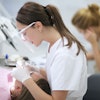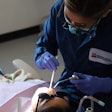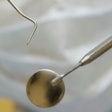Maine lawmakers have approved an amended version of a measure that would create midlevel dental therapists who could perform routine oral health procedures.
The bill, LD 1230, which was amended to gain the support of Gov. Paul LePage, strengthens portions of the bill to ensure that therapists are supervised by licensed dentists, according to a pressherald.com story.
The measure, sponsored by Rep. Mark Eves (D-North Berwick), was approved by the House without a roll call vote March 6. The bill requires additional votes in the House and Senate before reaching LePage.
The bill would allow therapists to work in dental practices in rural areas where dental care is not readily available to many residents, according to supporters of the bill. Some 15 of 16 of the state's counties have a shortage of dentists.
With about 600 practicing dentists, Maine has the fewest dentists per capita in New England. Forty percent of Maine's dentists are nearing retirement, say supporters, which include the Pew Research Center and the American Dental Hygienists' Association.
The Maine Dental Association has lobbied heavily against the bill, arguing that there is no shortage of dentists and the new University of New England College of Dental Medicine will offset future shortages.
The proposal is modeled after a law in Minnesota, where 32 dental therapists are now practicing since that state's 2009 law was passed.
Midlevel providers are also now working in Alaska, and 15 states are considering licensing them to do similar procedures. Some 53 countries, including Canada, allow dental hygienists to become dental therapists.
Under the Maine bill, dental therapists could open their own private practice, but they would need written permission from a Maine dentist while working under the direct supervision of a dentist. The bill requires therapists to have a supervising dentist check their work, such as examining x-rays.
Supporters said the measure would allow hygienists to receive additional training to do as many as 53 procedures. Licensed dentists, who receive eight years of training, can perform more than 500 procedures.
The dental therapists would be required to have an additional 18 months of training, 1,000 hours of clinical training with a licensed dentist, and pass an examination by the Maine Board of Dental Examiners. They could then perform prophylaxes, restorations, and extractions but not root canals.
The new position would be similar to nurse practitioners.
The ADA has steadfastly opposed allowing midlevel providers (MLP) to do restorations and extractions, and has released reports that conclude the MLP model is not economically realistic or sustainable.



















